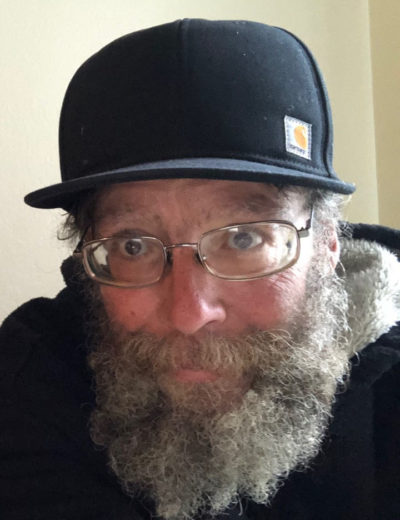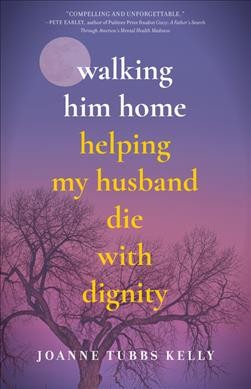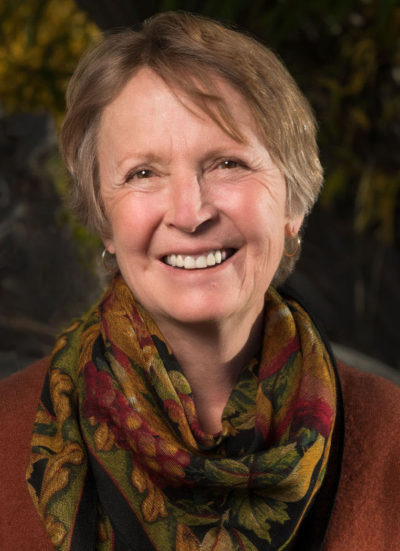
My son Joshua received multiple diagnoses. (Photo courtesy of Joanne Tubbs Kelly.)
(8-19-22) How do you accommodate grief? Are there silver linings in tragedies?
I first met Joanne Tubbs Kelly and her husband, Alan, several years ago when I spoke to a NAMI group in Boulder, Colorado. Their son, Joshua, had a serious mental illness.
Little did we know what the coming years would bring.
(Please tell me on my Facebook page what has helped you when you face difficult times.)
Good luck? Bad luck? – who knows?
Mental illness? Mental health? — who knows?
by Joanne Tubbs Kelly, author of Walking Him Home, helping my husband die with dignity.
Forgive me for starting this essay with a tired joke.
You’ve probably heard the one about the ancient farmer whose horse died, so he couldn’t plow his field. All his neighbors commiserated, saying “Sorry for your bad luck.” The farmer replied, “Good luck? bad luck? — who knows?”
Because his horse died, the farmer’s son came home from the next village to help his father plow the field by hand. His neighbors say, “How lucky you are your son came home to help you!” and the farmer once again replies, “Good luck/bad luck, who knows?”
The son breaks his leg while he is working in the farmer’s field. The neighbors tell him what bad luck he is having and the farmer replies with his now-famous response. And so on. The broken leg keeps the son from being drafted into the military.
There’s no punch line per se, just the constant refrain, “Good luck? Bad luck? — who knows?”
Now tuck that story away and listen to the story of mental illness in my family:
I am a 71-and-a-half-year-old woman who, other than a few very minor things like a slight curvature of the spine that doesn’t slow me down in the least, has always identified as physically and mentally healthy. The genes my mother inherited from her mother combined with the genes for my father’s narcissism (undiagnosed, except by me and my siblings, who had no doubts, whatsoever) may have been the cause of the varied brain disorders that popped up unannounced in my siblings and their children and grandchildren.
All my life, I’ve considered myself to be the lucky one. Other than an extremely mild case of seasonal-affective disorder –mostly insomnia during the winter months when sunlight is scarce – the family curse seemed to have skipped me.
When I married and started delivering and rearing children – a son and daughter — it was my son, Joshua, that we identified as the one in our nuclear family who was “mentally ill.” When he was in his early 20s, he was diagnosed first with depression, but that diagnosis didn’t stick for very long. Months later, a different doctor decided Joshua had bipolar disorder. By the time he was in his 30s, his diagnosis shifted to schizo-affective disorder, a type of schizophrenia where you continue to experience periodic mood shifts – the extreme highs and lows – that are more characteristic of bipolar disorder, in addition to the more permanent symptoms of schizophrenia: the disordered thinking, the psychotic episodes, the delusions that persist even when we give Joshua firm proof that he is wrong. At the time, we didn’t know any better than to try to convince him he was wrong.
Mind you, Joshua didn’t believe for one second that he had a mental illness.
He said he was not sick and he didn’t need help, thank you very much. If he acted in ways that bothered the rest of us, he attributed it to a significant traumatic brain injury he suffered when he was 14. He was riding an ATV with friends when he hit a rock and flew over the handlebars, landing on his head 60 feet later. Fortunately, he was wearing a helmet at the time. The helmet probably saved his life, but it didn’t prevent him from being left with a slightly out-of-alignment brain.
After I divorced Joshua’s father, I set about educating myself about mental illness so I could figure out how to best help my son who didn’t want help. I joined NAMI and took a bunch of classes. Then I got trained so I could facilitate the classes for others. I became president of my local NAMI affiliate and then served as president of my state’s NAMI board. Even though I was an introvert, I spoke at conferences, telling my son’s story and urging people to advocate for stronger laws to help us hospitalize people with mental illnesses who needed help. I even cofounded my own nonprofit dedicated to helping clergy learn to treat their flocks – or at least the members of their flocks who had mental illnesses – with more compassion.
Fast forward a few years. Joshua develops symptoms of OCD and an eating disorder. At one point, my son, who was 5-foot 10-1/2 inches tall, weighed 87 pounds. Or at least that’s what one of the police officers said, one of the officers who picked him up off the street. He looked like a prison-camp survivor. Joshua spends years in out of mental hospitals. He spends more than a full year at Fort Logan, Colorado’s long-term in-patient treatment facility, where they get him back to a normal weight. Joshua hates every minute of putting on that weight.
My husband, Alan, (Joshua’s stepfather) gets diagnosed with a fatal illness.
I decide to write a memoir about his illness and his choice to use medical aid in dying to shorten his suffering. My husband dies. I grieve. My sister dies 6 months later from complications from a stroke — at the height of the Covid epidemic. I grieve some more. I start writing the memoir about my husband’s death. And I continue to grieve.
Joshua has a bad cough. He smokes cigarettes and pot as if there is no tomorrow. He has finally decided it is OK for me to buy groceries for him each week and to clean the kitchen and bathroom of the small apartment where he lives. While I am doing these tasks, I try to convince Joshua to go to the doctor to get his cough assessed. Joshua refuses. I pay him to get a Covid vaccine, but I cannot convince him to see a doctor for his cough.
On Feb. 17, 2022, I find a sheriff and a fancily dressed woman standing on my front porch. The sheriff tells me he is sorry, but my son has died. The woman is a victim’s advocate. They tell me Joshua walked into the bus station downtown and collapsed. They tried for a long time to resuscitate him, but they were not successful. The sheriff gives me the business card for the coroner’s office, where an autopsy will be conducted. Weeks later, the coroner calls to tell me Joshua died of pneumonia. I am not surprised.
I grieve even more.
She Writes Press publishes My memoir on August 9, 2022.
I am a nervous wreck about doing my first in-person book launch event where I am going to have to talk about my book to strangers. I decide it feels a whole lot like standing naked in front of a crowd, because I have revealed so many of my flaws and shortcomings in the memoir. 
It is 3 days before the book launch event and I think I am coming down with a migraine. I am dizzy and having visual disturbances that usually portend a migraine for me. Although my friend who is a retired nurse tells me I could just be dehydrated, I believe it is a migraine prodromal phase because I can see the shadow of a ceiling fan rotating above me. I do not have any ceiling fans in my house. I call my doctor and beg for help, because I know I cannot speak before a crowd if I have a migraine. The triage nurse suggests I call a mobile service that will come to my house and give me an IV if they determine that’s what I need. I am thrilled when they show up at my door 2 hours later. (This service is currently available only in a few states.) They ask me a bazillion questions about my family history. I answer as completely as I can. My speech is pressured and my heart is fluttering. I feel like I am going to die, but I don’t tell the nurse that because I know she’ll think I am having an anxiety attack. My sister used to get anxiety attacks, so I know what they look like and what they feel like. I also feel like I have switched gears from my normal introverted self into an extroverted self I barely recognize.
The home-care nurses hook up a quick-drip IV with anti-migraine medication in it. And BOOM! I feel instantly better. I rejoice. I thank them profusely. They leave and I continue to feel great. I am aware that it might be a placebo effect, but I don’t care. As I said, I felt great.
I give my talk about my memoir. I am still in extroverted mode, and the talk goes well. I sign lots of copies of my book and chat with all the purchasers.
Two days later, a friend at church asks me how my talk went. I start to describe the evening to her and BOOM(again)! It hits me that what I experienced was a manic episode. Me. The healthy one.
The mother of the son with mental illness who needed my help.
Good luck? Bad luck? Who knows?
Mental illness? Mental health? Who knows?
ABOUT THE AUTHOR: Joanne Tubbs Kelly is the author of “Walking Him Home: Helping My Husband Die with Dignity.” She considers herself lucky to live in Boulder, Colorado, where she putters in her garden and enjoys walking and hiking in the mountains.




